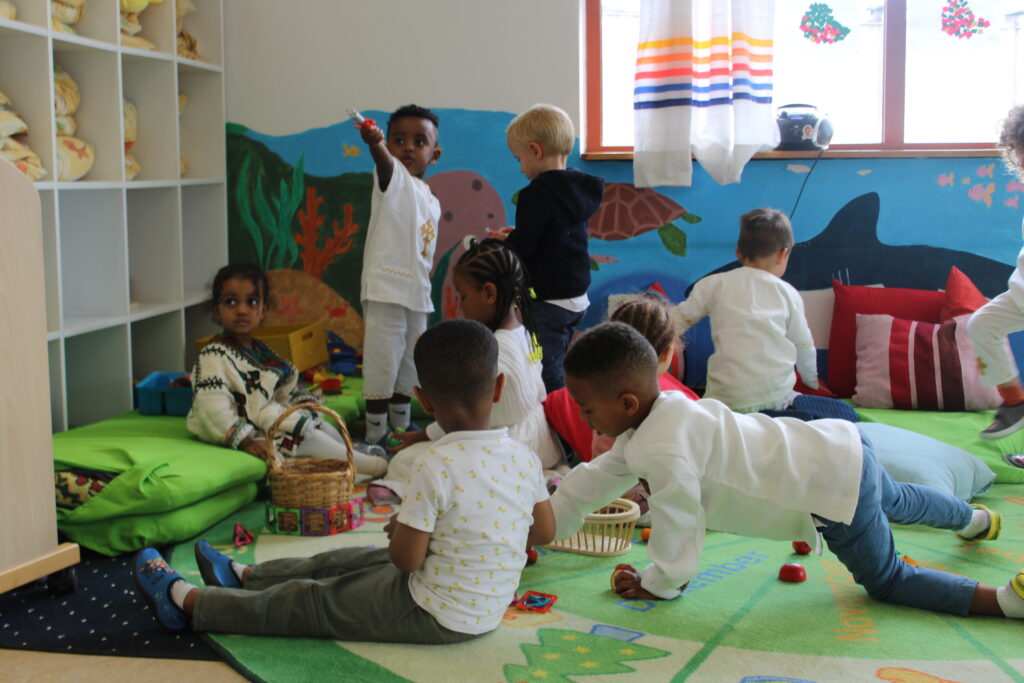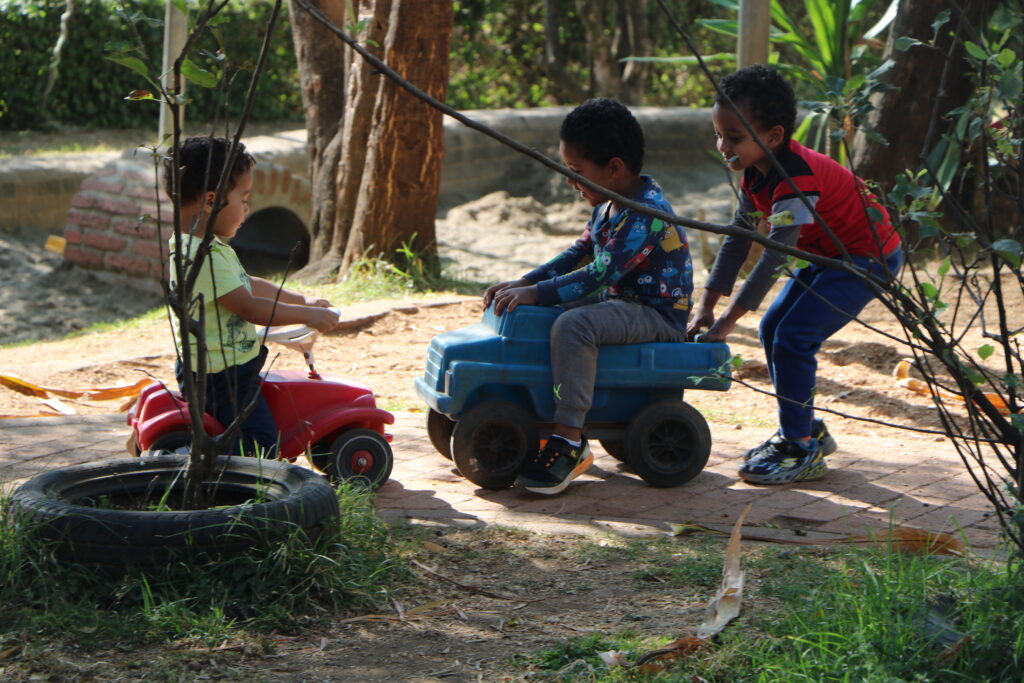Our kindergarten has an enrollment of around 105 children between the ages of 1-6 years. The children are organized into groups of 16-20 students led by German-speaking educators and Ethiopian teaching assistants.

Our pedagogical approach focuses on each child's developmental needs, experiences and interests. We aim to encourage independence, empathy, frustration tolerance and hands-on learning through play and exploration. Our goals are to facilitate well-rounded development across physical, cognitive, language, social-emotional and other domains.

We see each child as special and unique with their own strengths, talents, interests, needs and learning styles. Our role is to nurture and empower each child's individuality and self-confidence. We aim to support their positive self-image and help them build on their abilities and potential as individuals.
Our facility has several rooms including a large nursery room, three kindergarten group rooms, two preschool rooms, an outdoor area and more.
The daily schedule provides structure and routine. It includes time for play, learning activities, meals, rest and targeted language instruction. Highlights of the schedule:
Language support, early musical education, cooking and baking, sports.
Our educational concepts align with the Thuringian Curriculum, focusing on child development areas like language, math, music, art, science, motor skills and socio-cultural education. We have the KonLab language program, a research-based early language development program beneficial for children with needs. Children receive 1-2 hours daily of KonLab instruction.
Daily activities provide a balanced mix of structure and free play. Circle time, creative lessons, music and role playing are included. Sports and motor activities facilitate coordination. Free play is also essential for children to explore interests, with teacher support. A blend of guided and open exploration caters to different learning styles.

Our nursery provides specialized care and education for infants and young toddlers. With a lower teacher-student ratio, we can provide individualized attention for our littlest learners. The nursery focuses on sensory learning, motor skills, communicating needs, and socialization. This multi-age grouping allows children to learn collaboratively while being taught at their own developmental level.
The kindergarten groups contain 16-20 children each. Students remain with the same group peers and teachers for consistency. Groups are named after animals to make them more fun and engaging for the children.
The preschool groups help transition children into primary school learning. The curriculum focuses more on early math, literacy, and social-emotional skills to prepare them for Grade 1.
We place immense importance on building close cooperation between parents and educators for each child's optimal development. Our teaching philosophy centers around the child, but we recognize parents are the foremost experts on their children.
Daily check-ins at drop-off and pick up where important updates or issues can be discussed. Teachers take time to address parental questions or concerns.
Class activities, events, or performances that parents are encouraged to attend and participate in. This gives parents visibility into their child's kindergarten experiences.
Individual parent-teacher meetings that occur periodically where in-depth discussions about the child's learning, growth, behaviors, etc. can take place privately. Meetings include reviewing progress reports.
Notices, newsletters, and other written updates to inform parents on class activities, lesson plans, organizational information, etc.


We provide an environment where our children develop into empathetic, self-directed, critical thinkers who don’t give up when faced with challenges.
Address
Lorenzo Tiezaz St (Aware), Addis Ababa
P.O.Box
1372, Addis Ababa, Ethiopia
Phone
+251 (0) 97 20 342 17
©2024 DBSAA. All Rights Reserved.